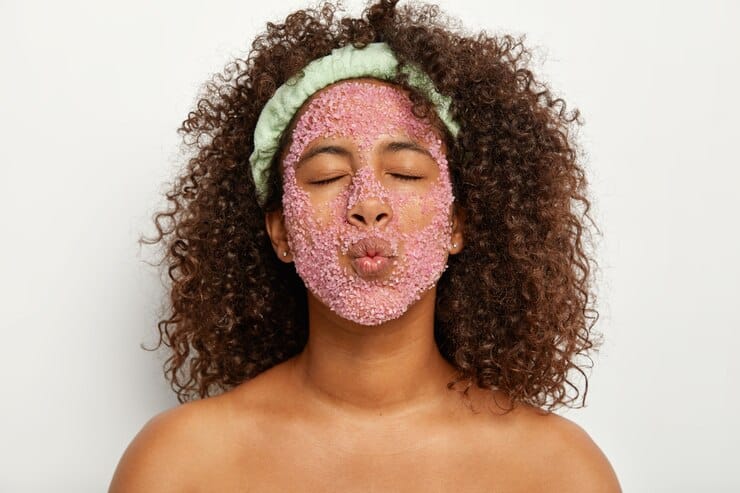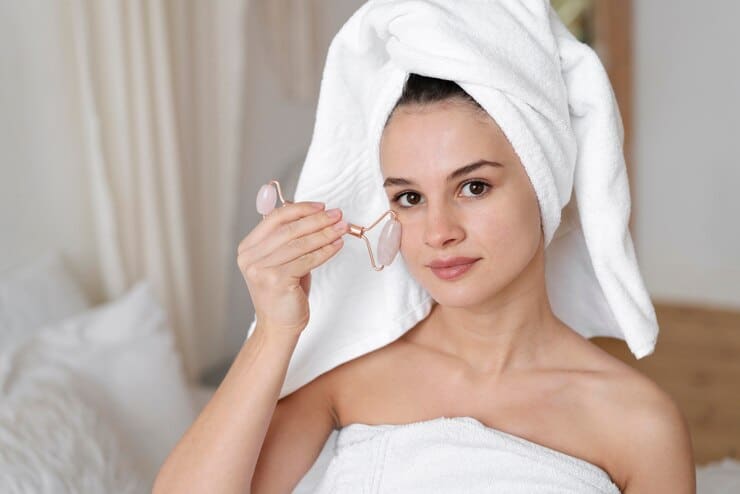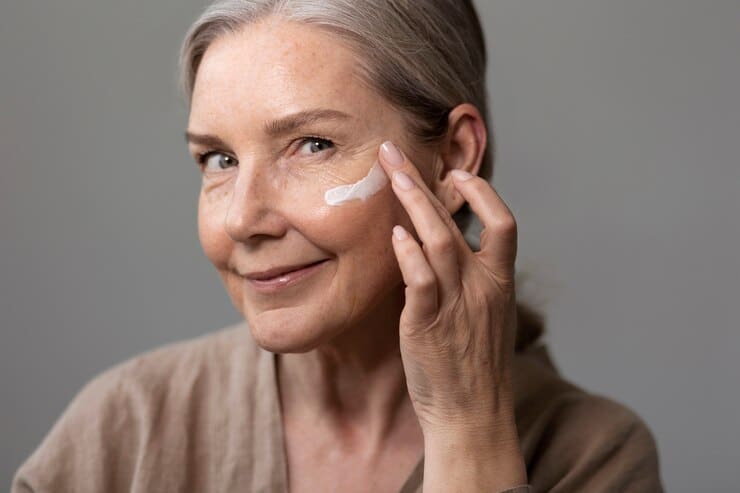Anti-Aging Skincare : Aging is a natural process that happens to everyone, but there are ways to slow down its effects, especially on our skin. Taking care of your skin is essential for maintaining a youthful appearance and preventing premature aging. An anti-aging skincare routine can help keep your skin healthy, vibrant, and youthful for years to come. In this article, we will discuss the essential steps for an anti-aging skincare routine in simple words, making it easy for everyone to understand and follow.
Understanding Aging and Skin
Before we delve into the steps of an anti-aging skincare routine, it’s important to understand how aging affects our skin. As we age, our skin undergoes various changes, including a decrease in collagen and elastin production, which leads to wrinkles, sagging skin, and fine lines. Additionally, factors such as sun exposure, pollution, and lifestyle habits like smoking can accelerate the aging process, making our skin appear older than it actually is.
Step 1: Cleansing
The first step in any skincare routine, including an anti-aging one, is cleansing. Cleansing helps remove dirt, oil, and impurities from the skin, preventing clogged pores and breakouts. Choose a gentle cleanser that suits your skin type, whether it’s dry, oily, or sensitive. Avoid harsh cleansers that strip the skin of its natural oils, as this can lead to dryness and irritation.
Step 2: Exfoliation

Exfoliation is the process of removing dead skin cells from the surface of the skin. This step is crucial in an anti-aging skincare routine because it promotes cell turnover, revealing fresh, new skin underneath. Exfoliate your skin 2-3 times a week using a gentle exfoliant with ingredients like alpha hydroxy acids (AHAs) or beta hydroxy acids (BHAs). Avoid over-exfoliating, as this can irritate the skin and cause damage.
Step 3: Hydration
Keeping your skin hydrated is key to maintaining its youthful appearance. As we age, our skin tends to become drier, so it’s essential to use hydrating products that nourish and moisturize the skin. Look for moisturizers containing ingredients like hyaluronic acid, glycerin, and ceramides, which help lock in moisture and improve skin elasticity. Apply moisturizer to your skin twice a day, in the morning and evening, to keep it hydrated and supple.
Step 4: Sun Protection
One of the most important steps in any anti-aging skincare routine is sun protection. Sun exposure is one of the leading causes of premature aging, including wrinkles, dark spots, and sagging skin. Protect your skin from the sun’s harmful UV rays by wearing sunscreen every day, even on cloudy days. Choose a broad-spectrum sunscreen with an SPF of 30 or higher, and reapply it every two hours when outdoors. Additionally, wear protective clothing, such as hats and sunglasses, to further shield your skin from the sun.
Step 5: Antioxidants
Antioxidants are powerful ingredients that help protect the skin from environmental damage and oxidative stress, which can accelerate the aging process. Incorporate antioxidant-rich products into your skincare routine, such as serums containing vitamins C and E, green tea extract, or niacinamide. These ingredients help neutralize free radicals and promote overall skin health, reducing the signs of aging over time.
Step 6: Retinoids

Retinoids, derived from vitamin A, are another essential component of an anti-aging skincare routine. Retinoids help stimulate collagen production, improve skin texture, and reduce the appearance of wrinkles and fine lines. Start by using a low concentration of retinoids and gradually increase the strength as your skin adjusts. Apply retinoids at night, as they can make your skin more sensitive to sunlight.
Step 7: Eye Cream
The skin around the eyes is delicate and prone to aging signs like fine lines, wrinkles, and dark circles. Incorporating an eye cream into your skincare routine can help hydrate and nourish this sensitive area, reducing the appearance of aging signs. Choose an eye cream containing ingredients like peptides, hyaluronic acid, and vitamin K to target specific concerns such as puffiness and dark circles.
Step 8: Lifestyle Factors
In addition to a consistent skincare routine, certain lifestyle factors can also impact the aging process of your skin. Maintain a healthy diet rich in fruits, vegetables, and antioxidants to nourish your skin from the inside out. Stay hydrated by drinking plenty of water throughout the day, as dehydration can lead to dry, dull skin. Get enough sleep each night, as inadequate sleep can accelerate the aging process and lead to dark circles and dullness.
Conclusion
Taking care of your skin is essential for maintaining a youthful appearance and preventing premature aging. By following the essential steps outlined in this article – cleansing, exfoliation, hydration, sun protection, antioxidants, retinoids, eye cream, and lifestyle factors – you can keep your skin healthy, vibrant, and youthful for years to come. Remember to be consistent with your skincare routine and choose products that suit your skin type and concerns. With proper care and attention, you can achieve beautiful, age-defying skin at any stage of life.
Also Refer : 8 Ways to Keep Your Nails Healthy
FAQs
What causes skin aging?
Skin aging is primarily caused by a combination of factors including genetics, sun exposure, pollution, lifestyle habits like smoking, and a decrease in collagen and elastin production as we age.
Why is sunscreen important for anti-aging skincare?
Sunscreen is crucial for anti-aging skincare because it helps protect the skin from harmful UV rays, which can lead to premature aging, including wrinkles, dark spots, and sagging skin.
How often should I exfoliate my skin?
It’s generally recommended to exfoliate your skin 2-3 times a week using a gentle exfoliant. However, the frequency may vary depending on your skin type and sensitivity, so it’s essential to listen to your skin’s needs.
What are antioxidants, and why are they beneficial for anti-aging?
Antioxidants are powerful ingredients that help protect the skin from environmental damage and oxidative stress, which can accelerate the aging process. They neutralize free radicals and promote overall skin health, reducing the signs of aging over time.
Can I start using retinoids if I have sensitive skin?
If you have sensitive skin, it’s essential to start using retinoids cautiously and gradually. Begin with a low concentration of retinoids and gradually increase the strength as your skin adjusts. Additionally, consult with a dermatologist to determine the best approach for your skin type and concerns.
Image Source : Freepik





